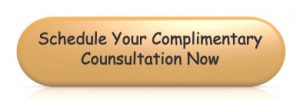The Multitask Downfall
We all multitask – that is a given. We text while we are in meetings, we work on a project while checking Facebook, and we talk on the phone while reading our email. The list can go on and on with how many ways we multitask on a daily, routine basis. The real question is this: Are we more or less productive when we are multitasking?
When we are multitasking, are we improving our work? Are we getting that project done in a timely fashion with little to no mistakes? The answer is usually no, we are not accomplishing more nor are we going to hand in a project with no mistakes because of multitasking.
Peter Bregman, writer for the Harvard Business Review website and CEO Leadership counselor, found this when studying the damages of multitasking:
A study showed that people distracted by incoming email and phone calls saw a 10-point fall in their IQs. What’s the impact of a 10-point drop? The same as losing a night of sleep. More than twice the effect of smoking marijuana. Doing several things at once is a trick we play on ourselves, thinking we’re getting more done. In reality, our productivity goes down by as much as 40%. We don’t actually multitask. We switch-task, rapidly shifting from one thing to another, interrupting ourselves unproductively, and losing time in the process.
[wpob id=”2″]Productivity goes down by 40% and our IQ drops 10 points! Not only does it hit you hard on the IQ scale, but it affects your health also. Jonathan Wells, founder of the blog Advanced Life Skills, found that research has shown that multitasking can increase productivity to some extent. This increase likely results from the mental pressure and sense of urgency that it imposes. However, this pressure is a form of stress that will trigger a physiological stress response. That means that frequent multitasking can quickly become a source of chronic stress. Over time, this stress will hinder your ability to focus and could even compromise your health.
Both Jonathan Wells and Peter Bregman have ways to help you keep yourself focused and not multitask while working on a project or even talking on the phone. Wells has five tips to avoid the stress from multitasking and Bregman has the results and breakthroughs he found when he did nothing but focus on what was at hand.
Jonathan Wells’ 5 Tips for avoiding the stress from multitasking
- Prioritize. You have heard this a million times, but it is very true. Start your day off by prioritizing what is most important for you to get done for the day and what is less important (meaning if you don’t get around to it, then put it on another day’s to-do list). This will help you stay focused on the task at hand as well as having a plan for the day.
- Start early. First thing when you get to work, start on your important task so you won’t run out of time.
- Limit Distractions. That means Facebook, Twitter, emails, other tabs in your windows, or anything else that distracts you.
- Silence Your Cell Phone. When you want to focus, turn off your cell phone. This will limit a huge distraction and you will be able to concentrate more.
- Control Your Workspace. Try to isolate yourself (if you can) in order to work without any distractions. Let the people around you know you’re working and you would rather not be disturbed. Find what makes you zone in and put that into practice.
Peter Bregman’s Revelations through not multitasking
- Focus reduces stress. Bregman found that when he focused completely on a given project, no matter how big or small, he was relieved of stress. “It was a relief to do only one thing at a time. I felt liberated from the strain of keeping so many balls in the air at each moment. It felt reassuring to finish one thing before going to the next,” Bregman reflected.
- Intentional focus allowes him to be “present” in his relationships. Bregman found that he was more engaged with the people in his life when he chose to turn off his cellphone or computer. His two examples were: 1) how he felt more of a bond between his children and himself and 2) how he really listened to his wife, because he had no other tasks distracting him.
- Setting parameters around tasks streamlines productivity and removes the temptation to multitask. Bregman found that cutting meetings or deadlines short forced him to get the point across faster or focus on the work before him. He noted that when he cut the time from an hour-long meeting to thirty minutes he got to the point quicker. Deadlines were cut shorter so he could actually work on a project with more intense focus, which he couldn’t have done before without an approaching deadline. When he cut deadlines down, he felt like he was able to relax more and stress less. He set clear parameters and got it done.
Start Single Tasking
Starting today, stop multitasking. It’s not good for your health, your IQ level, or the mistakes you make along the way. So start single tasking and making sure all distractions – for a time – are off and away. Relax more, enjoy those around you without rush, and have a higher IQ level!



Interesting study, Cathy. I always figured multi-tasking made projects take longer because you are constantly losing your “flow” state, but I hadn’t thought about it increasing stress and harming your health. Every time my “flow state” is lost, I have to regroup my thoughts and recall where I was.
Side note: The links in your text seem to be the same color as the rest of the text. I could only find the link to the original study by moving my mouse across the text and watching for the cursor to change. I just thought you might not realize that.
Thank you Laura for your comments. Yes, multitasking can have many side effects. Thank you for the heads up on the links